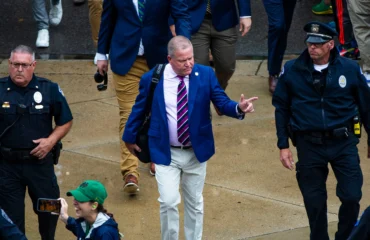The Fifth Circuit reversed a district court order that incorrectly found LSU and the law firm hired for a Title IX investigation conspired to unlawfully conceal public records related to the allegations.
A former assistant athletic director at Louisiana State University (LSU), who is pursuing Title VII and Title IX claims of widespread sexual misconduct by the football staff, is not entitled to evidentiary disclosures and depositions of investigatory reports protected by attorney-client privilege. The Fifth Circuit reversed and remanded the district court’s order, which had granted the employee’s motion to compel under the crime-fraud exception. The appellate court found that the lower court erred in determining that the employee had established a prima facie case that LSU officials violated state law by hiding public records and that the privileged communications were made in furtherance of the crime and related to the alleged violation (Lewis v. Crochet, No. 23-30386 (5th Cir. June 17, 2024)).
While working as the assistant athletic director for LSU’s football team until 2022, the employee managed student workers in the administrative offices. She claimed to have witnessed numerous instances of racist and sexist behavior from the former head football coach and received sexual harassment complaints from student workers, which were often ignored by the athletics program heads.
In 2013, LSU hired the law firm Taylor, Porter, Brooks & Phillips LLP to investigate the sexual harassment allegations. The investigation’s report was kept confidential, and the allegations were privately settled. After the investigation, the coach was instructed to avoid one-on-one contact with student employees.
In November 2020, a news article alleged widespread sexual misconduct in LSU’s athletics program, prompting the employee to file Title VII and Title IX claims against the LSU Board of Supervisors. She also filed civil RICO claims against Taylor Porter, accusing the firm of suppressing complaints. The district court dismissed the RICO suit, and the Fifth Circuit affirmed.
During the appeal of the RICO dismissal, the employee’s Title VII and Title IX claims continued. The Board sought a protective order to prevent depositions of the Taylor Porter attorneys and disclosure of investigation documents, arguing they were irrelevant and protected by privilege. The employee argued that the unredacted documents were discoverable under the crime-fraud exception, citing various laws against concealing public records and influencing testimony.
In March 2023, the court applied the crime-fraud exception, ruling the Board had intentionally concealed the investigatory reports. The employee moved to compel depositions and the disclosure of redacted documents, while the attorneys sought a protective order. The district court denied the protective order and compelled the depositions and document disclosure, leading to the interlocutory appeal.
The Fifth Circuit found the district court erred in applying the crime-fraud exception to the attorney-client privilege. The employee failed to make a prima facie showing that the Taylor Porter partners committed a crime, that the privileged communications were in furtherance of that crime, or that they were related to fraudulent activity.
The Fifth Circuit concluded that the investigatory documents were not public records at the time of the alleged concealment and that there was minimal evidence of criminal concealment by the Board or the attorneys. The appellate court ruled that the district court clearly erred in its findings.





